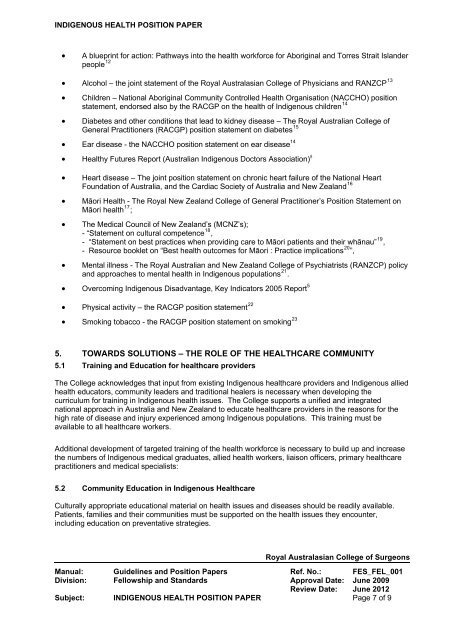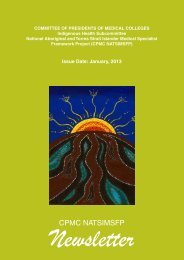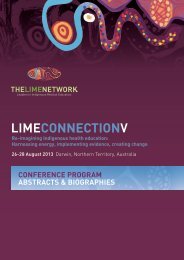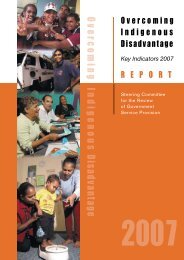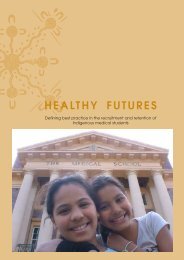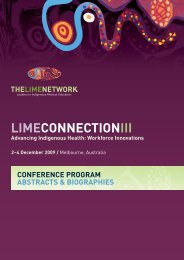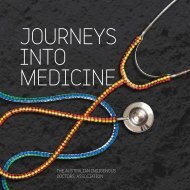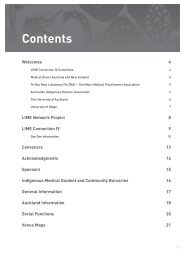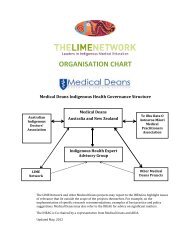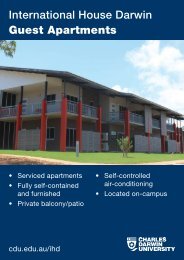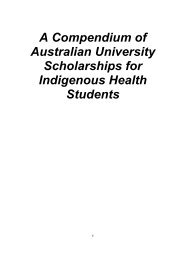View - LIME Network
View - LIME Network
View - LIME Network
You also want an ePaper? Increase the reach of your titles
YUMPU automatically turns print PDFs into web optimized ePapers that Google loves.
INDIGENOUS HEALTH POSITION PAPER• A blueprint for action: Pathways into the health workforce for Aboriginal and Torres Strait Islanderpeople 12• Alcohol – the joint statement of the Royal Australasian College of Physicians and RANZCP 13• Children – National Aboriginal Community Controlled Health Organisation (NACCHO) positionstatement, endorsed also by the RACGP on the health of Indigenous children 14• Diabetes and other conditions that lead to kidney disease – The Royal Australian College ofGeneral Practitioners (RACGP) position statement on diabetes 15• Ear disease - the NACCHO position statement on ear disease 14• Healthy Futures Report (Australian Indigenous Doctors Association) 8• Heart disease – The joint position statement on chronic heart failure of the National HeartFoundation of Australia, and the Cardiac Society of Australia and New Zealand 16• Māori Health - The Royal New Zealand College of General Practitioner’s Position Statement onMāori health 17 ;• The Medical Council of New Zealand’s (MCNZ’s);- “Statement on cultural competence 18 ,- “Statement on best practices when providing care to Māori patients and their whānau” 19 ,- Resource booklet on “Best health outcomes for Māori : Practice implications 20 ”,• Mental illness - The Royal Australian and New Zealand College of Psychiatrists (RANZCP) policyand approaches to mental health in Indigenous populations 21 .• Overcoming Indigenous Disadvantage, Key Indicators 2005 Report 5• Physical activity – the RACGP position statement 22• Smoking tobacco - the RACGP position statement on smoking 235. TOWARDS SOLUTIONS – THE ROLE OF THE HEALTHCARE COMMUNITY5.1 Training and Education for healthcare providersThe College acknowledges that input from existing Indigenous healthcare providers and Indigenous alliedhealth educators, community leaders and traditional healers is necessary when developing thecurriculum for training in Indigenous health issues. The College supports a unified and integratednational approach in Australia and New Zealand to educate healthcare providers in the reasons for thehigh rate of disease and injury experienced among Indigenous populations. This training must beavailable to all healthcare workers.Additional development of targeted training of the health workforce is necessary to build up and increasethe numbers of Indigenous medical graduates, allied health workers, liaison officers, primary healthcarepractitioners and medical specialists:5.2 Community Education in Indigenous HealthcareCulturally appropriate educational material on health issues and diseases should be readily available.Patients, families and their communities must be supported on the health issues they encounter,including education on preventative strategies.Royal Australasian College of SurgeonsManual:Division:Subject:Guidelines and Position PapersFellowship and StandardsINDIGENOUS HEALTH POSITION PAPERRef. No.:Approval Date:Review Date:FES_FEL_001June 2009June 2012Page 7 of 9


